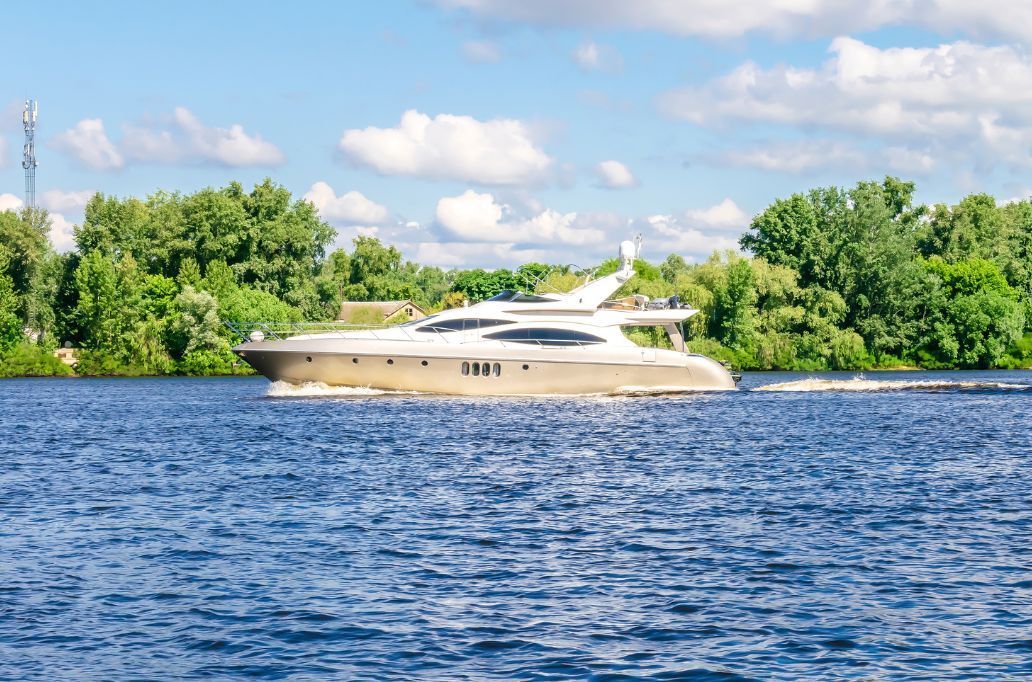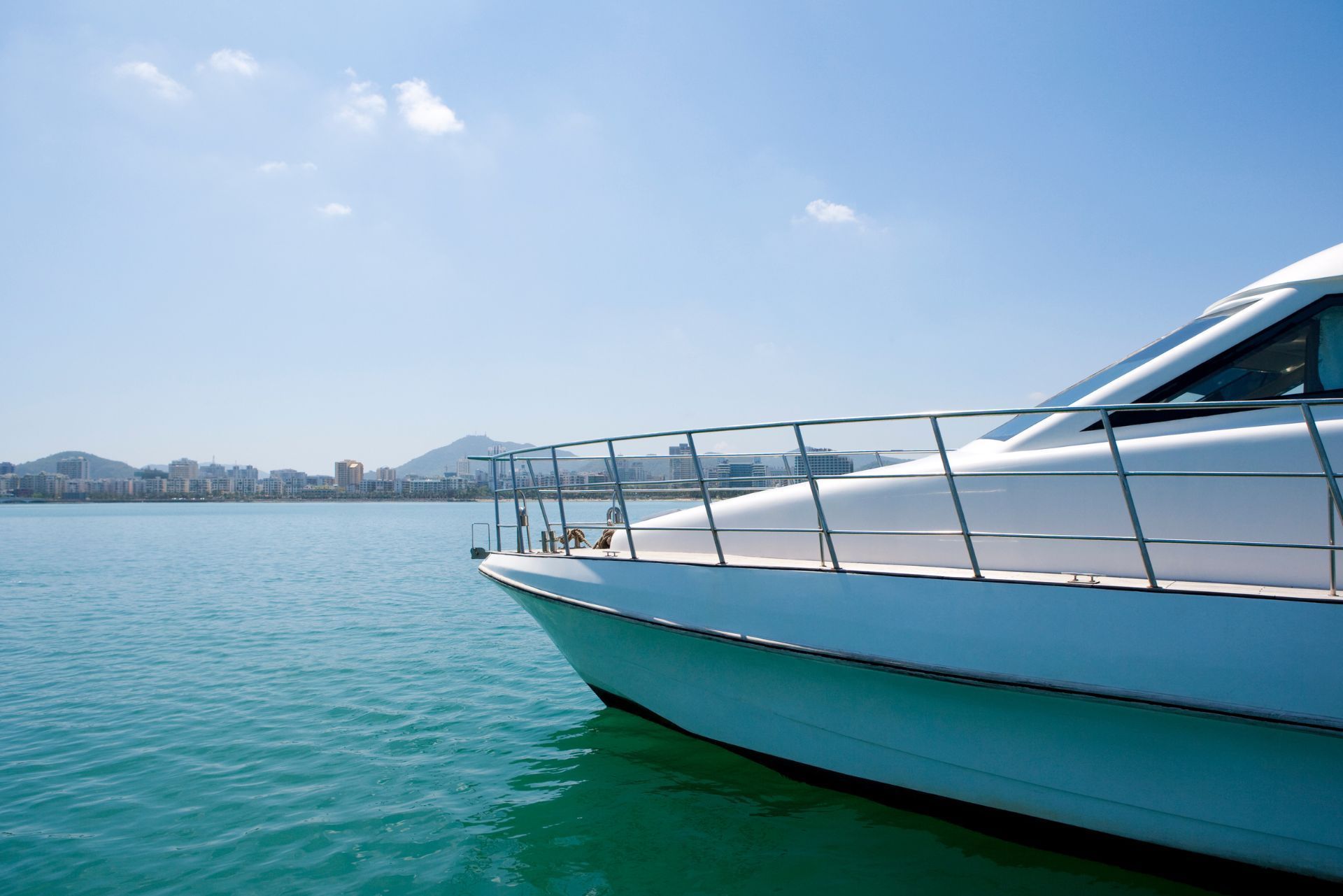
Index
Yachting is not just a pastime; it's a lifestyle that many in Michigan cherish. With the Great Lakes at their doorstep, boaters enjoy exploring the vast waters, creating unforgettable memories. However, with the joys of yachting come responsibilities, including the need for proper insurance. This article will delve into the essentials of
yacht insurance in Michigan, covering everything from types of coverage to factors influencing premiums.
Understanding Yacht Insurance
Yacht insurance is designed to protect boat owners from a variety of risks associated with owning and operating a yacht. This type of insurance can cover damages to the vessel itself, liability for injuries or damages to others, and more. Understanding the nuances of yacht insurance is crucial for any boat owner. With the rising popularity of recreational boating, having the right insurance coverage has become increasingly important to ensure that both the yacht and its owner are adequately protected against potential liabilities.
What Does Yacht Insurance Cover?
Yacht insurance typically includes several key coverages:
- Physical Damage Coverage: This protects your yacht from damages due to accidents, storms, vandalism, and other unforeseen events. Whether you are cruising through calm waters or navigating through rough seas, having this coverage can save you from significant financial loss.
- Liability Coverage: If someone is injured while on your yacht or if your yacht causes damage to another vessel or property, this coverage can help pay for legal fees and settlements. Given the potential for costly lawsuits, liability coverage is an essential component of any yacht insurance policy.
- Medical Payments Coverage: This helps cover medical expenses for injuries sustained by you or your guests while on the yacht, regardless of fault. This coverage ensures that you can focus on enjoying your time on the water without worrying about unexpected medical bills.
Types of Yacht Insurance Policies
There are several types of yacht insurance policies available, each catering to different needs:
- Agreed Value Policy: This policy pays a predetermined amount if your yacht is declared a total loss, providing peace of mind. It is particularly beneficial for high-value yachts, as it guarantees that you will receive a fair amount that reflects the yacht's worth.
- Actual Cash Value Policy: This type pays the current market value of the yacht at the time of loss, which may be less than the original purchase price. Owners should be aware that depreciation can significantly impact the payout, making this policy less favorable for newer yachts.
- Liability-Only Policy: For those who own older yachts or those with lower values, a liability-only policy may suffice, covering only third-party damages. This option can be a cost-effective solution for boaters who wish to minimize their insurance expenses.
In addition to these standard coverages, many yacht insurance policies offer optional add-ons that can enhance your protection. For instance, coverage for personal belongings on board, such as electronics and gear, can be included to safeguard against theft or damage. Furthermore, some policies provide coverage for towing and assistance services, which can be invaluable in emergencies when you find yourself stranded or in need of help on the water. Understanding these additional options can help you tailor your policy to fit your specific boating lifestyle and needs.
Moreover, it is essential for yacht owners to review their insurance policies regularly, especially after making significant upgrades or changes to their vessels. Factors such as renovations, new equipment, or changes in usage can all affect your insurance needs. By staying proactive and informed, you can ensure that your yacht insurance remains adequate and relevant, providing the necessary coverage to protect your investment and enjoy your time on the water with confidence.

Why You Need Yacht Insurance in Michigan
Owning a yacht in Michigan comes with unique challenges and risks, making insurance an essential consideration. The state’s unpredictable weather and busy waterways can lead to various incidents that could result in costly damages. Additionally, the diverse range of activities that yacht owners engage in, from leisurely cruising to fishing expeditions, can expose them to unforeseen liabilities that necessitate comprehensive coverage.
Protection Against Natural Disasters
Michigan is no stranger to severe weather, including storms, hail, and heavy snowfall. Yacht insurance can provide financial protection against damages caused by these natural disasters. For instance, if a storm damages your yacht while docked, your insurance can cover the repair costs. Furthermore, the Great Lakes are known for their sudden weather changes, which can catch even the most experienced sailors off guard. Having robust insurance means that you can enjoy your time on the water with peace of mind, knowing that you are protected against the elements.
Liability Risks on the Water
With the increasing number of boats on Michigan's lakes, the risk of accidents is heightened. Liability coverage can protect yacht owners from the financial fallout of accidents, including injuries to passengers or damage to other vessels. This coverage is crucial for safeguarding personal assets. Moreover, as boating regulations become stricter, being adequately insured can help you navigate legal complexities that arise from accidents or disputes on the water. In the unfortunate event of an incident, having liability insurance can also expedite the claims process, allowing you to focus on recovery rather than financial stress.
Coverage for Theft and Vandalism
In addition to natural disasters and liability risks, yacht owners in Michigan must also consider the potential for theft and vandalism. With many marinas and docking areas being public, the risk of unauthorized access to your vessel increases. Yacht insurance can provide coverage for theft of equipment or the entire yacht itself, ensuring that you are not left with a significant financial loss. Additionally, many policies offer protection against vandalism, which can be particularly important in areas where boats are stored outdoors during the off-season. This aspect of coverage can help you recover costs associated with repairs or replacements, allowing you to get back on the water without a significant financial burden.
Factors Influencing Yacht Insurance Premiums
When seeking yacht insurance, understanding the factors that influence premiums can help boat owners make informed decisions. Several elements come into play when determining the cost of coverage.
Type and Size of the Yacht
The type and size of the yacht significantly impact insurance costs. Larger and more luxurious yachts typically require higher premiums due to their increased value and repair costs. Additionally, certain types of yachts, such as those designed for racing, may have different insurance requirements and risks. For instance, performance yachts that are built for speed often have specialized equipment and features that can increase the likelihood of accidents, prompting insurers to adjust premiums accordingly. Moreover, the materials used in construction—such as fiberglass versus aluminum—can also affect the cost of repairs and, consequently, the insurance rates.
Location and Mooring
The location where the yacht is moored also plays a vital role in determining insurance premiums. Yachts moored in areas prone to storms or high traffic may incur higher rates. Conversely, if a yacht is stored in a safe harbor or marina, it may qualify for lower premiums. Additionally, the geographical area can influence the risk of theft or vandalism, with urban locations typically presenting higher risks than rural or secluded moorings. Insurers may also take into account local regulations and environmental factors, such as proximity to navigational hazards or marine wildlife, which can further impact the cost of coverage.
Experience and Safety Record
Insurance providers often consider the owner's experience and safety record when calculating premiums. Experienced boaters with a clean record may receive discounts, while those with a history of accidents may face higher rates. Taking
boating safety courses can also positively impact insurance costs. Furthermore, the presence of safety equipment on board, such as life jackets, fire extinguishers, and GPS tracking systems, can demonstrate a commitment to safety and potentially lower premiums. Insurers may also look at the frequency of use; for example, yachts that are used year-round may be deemed higher risk than those that are only taken out occasionally, leading to variations in premium calculations.
Choosing the Right Yacht Insurance Provider
Selecting the right insurance provider is a crucial step in ensuring adequate coverage for your yacht. With numerous options available, it's essential to do thorough research.
Researching Insurance Companies
Start by researching various insurance companies that specialize in yacht insurance. Look for providers with a strong reputation and positive customer reviews. Online resources and forums can provide valuable insights into the experiences of other yacht owners. Additionally, consider checking the financial stability of the insurance companies through ratings from agencies like A.M. Best or Standard & Poor's. A financially sound company is more likely to honor claims and provide reliable service when you need it most.
Comparing Coverage Options
Once you have a list of potential providers, compare their coverage options. Look for policies that offer comprehensive coverage tailored to your specific needs. Pay attention to exclusions and limitations to ensure you fully understand what is covered. It’s also wise to inquire about additional coverage options such as protection against environmental damage, liability coverage for crew members, and coverage for personal belongings on board. Understanding these nuances can help you avoid unexpected costs and ensure that your yacht is protected in a variety of situations.
Seeking Professional Advice
Consulting with a marine insurance agent can be beneficial. These professionals can provide personalized recommendations based on your yacht type, usage, and budget. They can also help you navigate the complexities of insurance policies, ensuring you make an informed choice. Furthermore, a knowledgeable agent can assist you in understanding the claims process, which can often be daunting for first-time yacht owners. They can guide you on how to document incidents effectively and what information is necessary to facilitate a smooth claims experience.
Understanding Policy Terms
In addition to seeking professional advice, it's important to take the time to read and understand the terms of the policy you are considering. Look for key terms such as "agreed value" versus "actual cash value," as these can significantly impact how much you receive in the event of a loss. Familiarize yourself with the policy's deductibles, as well, since these can vary widely between providers. Knowing these details can empower you to make a choice that not only meets your coverage needs but also aligns with your financial expectations.
Evaluating Customer Service
Lastly, consider the level of customer service provided by the insurance company. A responsive and helpful customer service team can make a significant difference, especially during stressful situations such as filing a claim. Reach out to potential providers with questions to gauge their responsiveness and willingness to assist. This interaction can give you a clearer picture of how they value their clients and how they might support you in times of need. Remember, a good insurance provider should not only offer solid coverage but also be a reliable partner when you need assistance the most.

Common Exclusions in Yacht Insurance Policies
Understanding exclusions in yacht insurance policies is just as important as knowing what is covered. Many policies have specific exclusions that can affect claims, and being aware of these can save yacht owners from unexpected financial burdens. It's essential for yacht enthusiasts to read the fine print and consult with their insurance agents to clarify any uncertainties.
Wear and Tear
Most yacht insurance policies do not cover damages resulting from normal wear and tear. Routine maintenance is the owner's responsibility, and failing to maintain the yacht can lead to denied claims. This includes regular checks on the engine, hull, and other critical components that can deteriorate over time. Owners should keep detailed records of maintenance activities, as these can be crucial in substantiating claims and demonstrating that they have taken the necessary steps to care for their vessel.
Negligence
If a claim arises from negligence, such as operating the yacht under the influence of alcohol or failing to follow safety regulations, the insurance company may deny coverage. It's crucial for yacht owners to adhere to safety guidelines to avoid potential issues. This includes not only following legal requirements but also employing best practices while at sea, such as ensuring all safety equipment is functional and that crew members are trained in emergency procedures. Regular safety drills can help reinforce these practices and reduce the risk of negligent behavior during critical situations.
Unapproved Modifications
Making significant modifications to a yacht without notifying the insurance provider can lead to exclusions in coverage. Owners should always inform their insurer about any changes to ensure continued protection. This could include alterations like changing the engine, adding new electronics, or even cosmetic changes that affect the yacht's value. Additionally, some modifications might require special endorsements or adjustments to the policy to ensure that the new equipment or features are adequately covered. Engaging with marine surveyors or experts when making modifications can also provide insights into how these changes could impact insurance coverage.
Tips for Lowering Your Yacht Insurance Premiums
Bundling Insurance Policies
Many insurance providers offer discounts for bundling multiple policies, such as home and auto insurance. Consider consolidating your insurance needs with one provider to take advantage of these savings.
Increasing Deductibles
Choosing a higher deductible can lower your premium. However, it's essential to ensure that the deductible is still manageable in the event of a claim. Evaluate your financial situation to determine the right balance between premium costs and deductible amounts.
Taking Boating Safety Courses
Completing boating safety courses can lead to discounts on insurance premiums. Many insurers recognize the value of education and may reward responsible boaters with lower rates.
Understanding the Claims Process
In the unfortunate event of a loss, understanding the claims process is crucial for yacht owners. Knowing what to expect can help alleviate stress during a challenging time.
Reporting the Incident
As soon as an incident occurs, it's essential to report it to your insurance provider promptly. Most policies require timely reporting to ensure coverage. Provide all necessary details, including photos and witness statements, to support your claim.
Documentation and Evidence
Gathering documentation is critical for a successful claim. Keep records of the incident, including receipts for repairs and any other relevant information. This evidence can help expedite the claims process and ensure a fair settlement.
Working with Adjusters
Insurance adjusters will assess the damage and determine the payout amount. Be prepared to cooperate with them and provide any additional information they may require. Understanding the adjuster's role can help facilitate a smoother claims process.
Conclusion
Yacht insurance is a vital aspect of responsible boat ownership in Michigan. With the right coverage, yacht owners can enjoy their time on the water with peace of mind, knowing they are protected against various risks. By understanding the types of coverage available, factors influencing premiums, and how to choose the right provider, boaters can make informed decisions that suit their needs. Whether you are a seasoned sailor or a new yacht owner, investing time in understanding yacht insurance will pay off in the long run.

